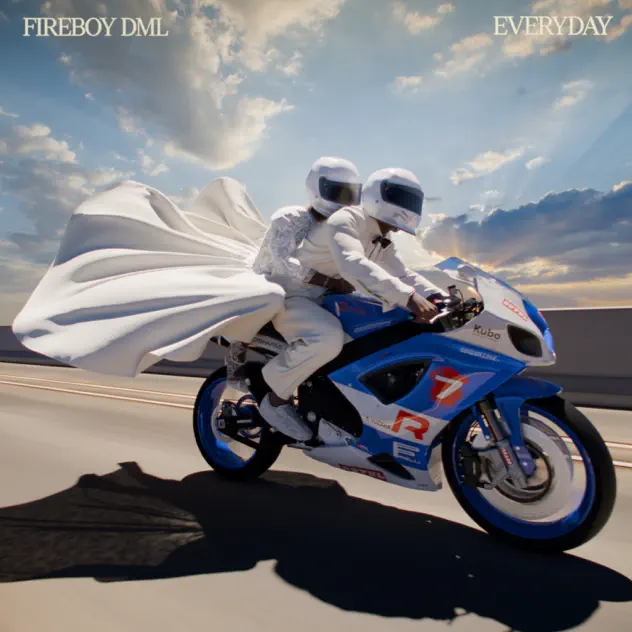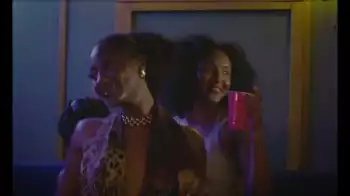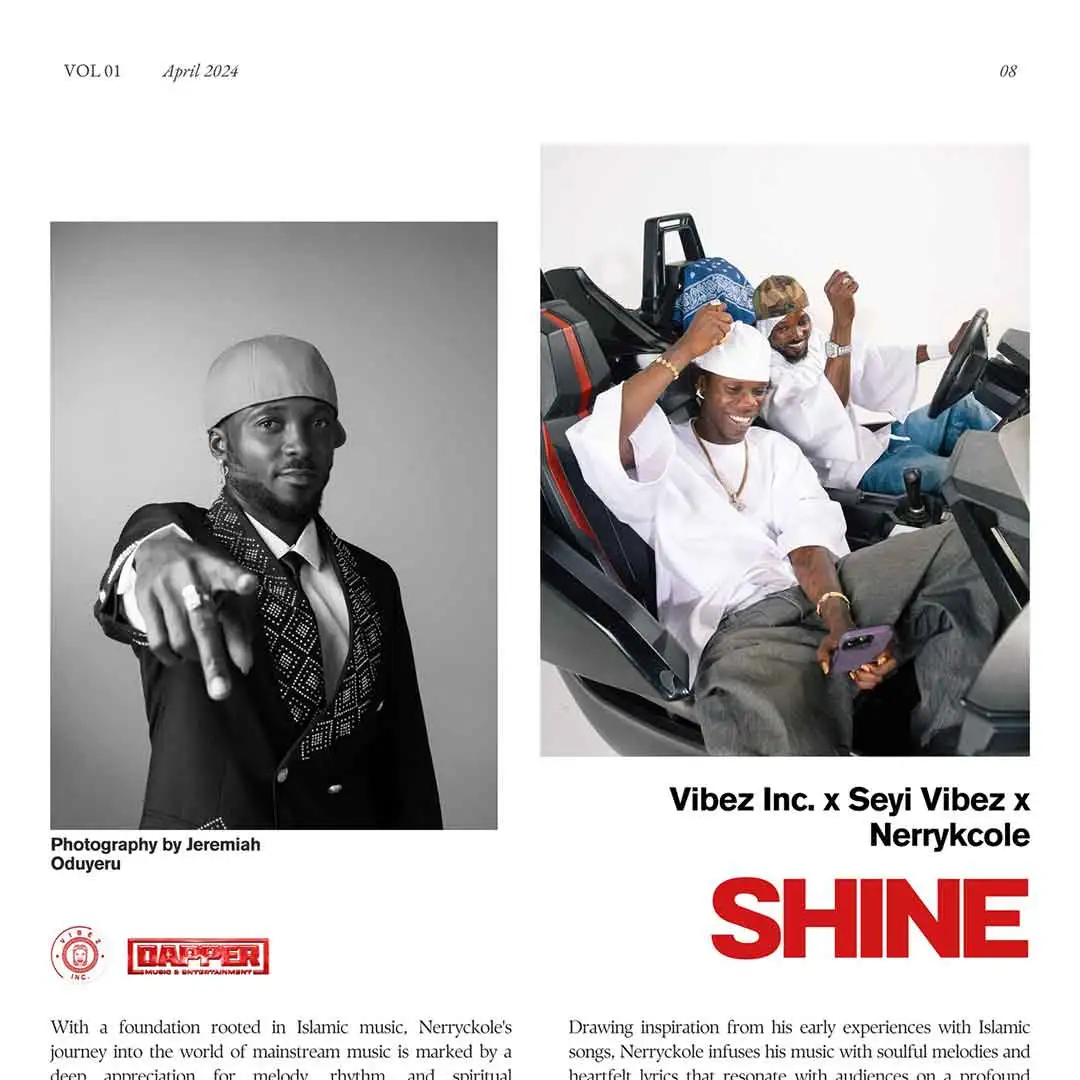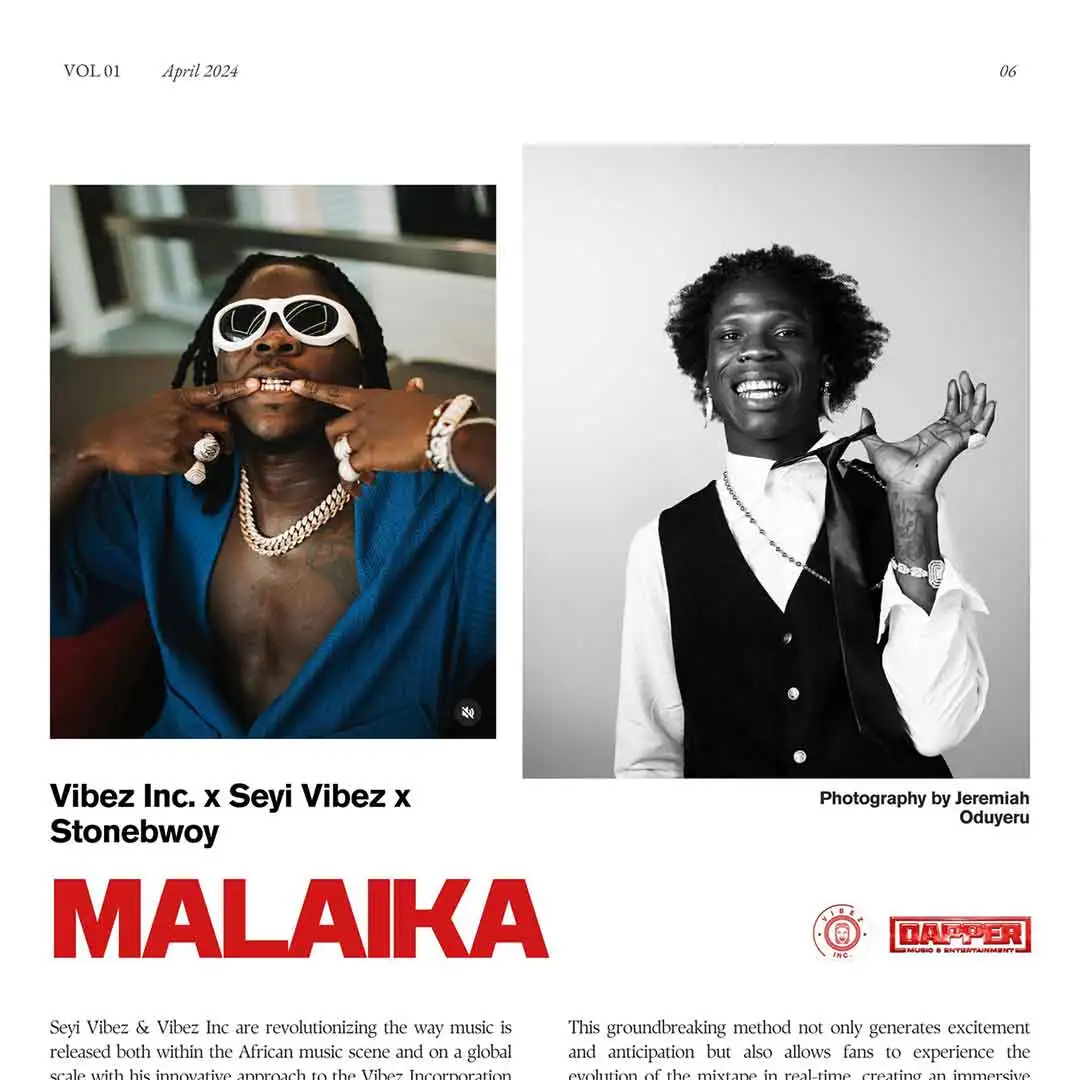Conflicted Destiny - Season 1 Episode 20
.jpg?w=900&ulb=true&ssl=1)
Conflicted Destiny - Season 1 Episode 20
While I waited for my flight, many things fluttered through my mind. I wondered if I would ever see my family again, and wished that I could see them one more time before leaving. They would have no idea of my whereabouts. I hoped that God would guide and protect them while I was gone, and that the future would turn out well for me.
I was brought back to reality by the voice of the announcer on the PA system calling all the passengers on my flight to begin boarding. It was my first time flying, and I tried as much as possible not to look awkward and out of place. I had read a few things about air travel, and I applied everything I could remember. I must have done well because nobody looked at me funny.
Our flight took off smoothly. I wasn’t frightened; instead, I felt right at home. The lady next to me engaged me in conversation. She was a businesswoman who traveled frequently from Liberia to Nigeria to buy her goods, which she supplied to her customers in Monrovia. She asked me if I knew anyone in Liberia, and I lied that I did. I told her that a friend of mine, whose address I didn’t have, would be waiting for me at the airport and that I would be staying with him.
An hour into the flight, the attendants announced that they would be serving meals. I was thrilled. I hadn’t eaten anything all day. But then we started to experience severe turbulence. The pilot immediately asked everyone to fasten their seatbelts and remain seated. I didn’t know what to expect, and the turbulence got worse by the second. I became confused and terrified. I had read about turbulences and plane crashes. I had also read that the flight attendants usually stayed calm and composed—a trade skill and strategy required for putting the passengers at ease during turbulence or emergencies. At the time, according to the pilot, we were cruising at an altitude of 30, 00 feet. The turbulence got so bad that the plane suddenly dropped 10,000 feet—at least that’s what it felt like to me—and minutes later, dropped another 10,000 feet. I realized that we were in serious trouble when the other passengers started to panic, screaming things I could not understand.
Meanwhile I remained calm and observed the composure of the flight attendants, determined to take my cue from their demeanor. I decided that if they panicked, it meant we were in serious trouble, but if they remained calm, it meant everything would be okay. Looking at the two flight attendants sitting close to me, I noticed the fear in their eyes and realized that one of them was panicking. She was shaking uncontrollably. That was when I concluded that we were all going to die.
However, my biggest concern wasn’t that the plane was going to crash and we would all die. I was more concerned that I hadn’t eaten all day and I didn’t want to die on an empty stomach. My grandmother Nwanyi Burunnu had told me that the worst thing that could happen to anybody was to die on an empty stomach. I decided that I wouldn’t sit there and wait for my death.
I unfastened my seatbelt and got out of my seat. No one objected to this since everybody was consumed with fear. Everyone was screaming, and those who were not seemed petrified and lost in their own worlds. As soon as I got into the aisle, I started shouting my mother’s old protective anthem: “The Blood of Jesus! The Blood of Jesus!”
Everybody turned to me, staring with a mixture of fear and admiration. There were a few Muslims on board the airplane, but I guessed religious persuasion became irrelevant in life–or-death situations. Everyone stopped shouting and focused on me, urging me to keep calling Him. I was encouraged by their pleas, so I screamed even louder, and just as suddenly as it had started, the turbulence subsided and everything was calm again.
Everyone started clapping and thanking God in different languages as I sat down again. No meal was served in the end, but I doubted that anyone would have had an appetite—except for me. We landed at Roberts International Airport in Monrovia one hour later.
By the time I got through immigration and picked up my luggage, it was 8 p.m. I went outside to look for transportation into town. While I was waiting for a taxi, the businesswoman who sat next to me on the plane came out. She asked if my friend who was supposed to pick me up had arrived. I feigned a look of disappointment, telling her no, and I didn’t have his address. She asked me if I knew anyone else in Liberia. I said no. She then offered to split a ride with me.
We got into the taxi with a few other people. I pretended to cry, and the businesswoman asked why I was upset. I told her I had no money, except for five US dollars, and that my friend who was supposed to pick me up was also going to take care of my expenses. She felt sorry for me and offered to take me with her to a hotel. I accepted.
The taxi dropped us off at one of the hotels in downtown Monrovia. The businesswoman booked a room for herself and got a separate one for me, paying only for one night. She gave me five Liberian dollars before going to her room. I was unable to sleep that night, afraid of what awaited me the next day. I cried all night—for real this time—and was tempted to go back to Nigeria, but even if I wanted to, I couldn’t. I had no money and had come to Liberia with a one-way ticket. By daybreak, I was determined to stay strong and not look back. I got up that morning, ate breakfast, gathered my belongings, and left the hotel.
I roamed downtown Monrovia aimlessly, hoping for a miracle. By 4 p.m. I was really exhausted and hungry. I finally decided to sit down in a corner on Broad Street. After a few minutes, an idea occurred to me: There might be a Nigerian community somewhere in Monrovia. I got up and started to ask around, but nobody had heard of one. However, someone told me that there were two hotels a few miles away, Disco and Star, where most of the Nigerian businesspeople stayed when they came to Liberia.
Since I didn’t want to spend my five US dollars or the balance of the money that the businesswoman had given me the previous night, I decided not to take a taxi there. Instead, I walked the four-mile stretch from Broad Street to the Disco Hotel. When I got there, I changed my US dollars to Liberian dollars at the rate of one US dollar to two Liberian dollars, giving me a total of fourteen Liberian dollars.
The Disco and Star hotels were located side by side. I took a quick tour of both and observed that there were indeed many Nigerians staying there. I inquired about the rate and was told that the daily rate for the Star Hotel was five Liberian dollars a night, whereas Disco was seven, so I got a room at the Star. The plan was to stay there for two nights and use the opportunity to interact with other Nigerians lodged in both hotels. I figured that I had to appear to be on the same affluence level to successfully engage with them. I couldn’t just show up and start to impose myself on people, but if I had a room, then I would appear to be on equal footing with everyone else at the hotel.
I paid for my room and settled in. In no time, I started to interact with the Nigerian boys. When asked, I maintained my story about the friend who had invited me to Liberia, but for some unknown reason had failed to show up at the airport. Some of the guys I met were Igbo, like me. They invited me to dinner that night and we hung out all night long. Most of them had lots of money and dealt mainly in imports and exports between Nigeria and Liberia. While in Liberia, they would lodge at the Star or Disco until they received their payment from their various customers. One of the goods they exported from Liberia to Nigeria was textile material such as brocade, commonly used for making traditional dresses and Muslim clothes called babariga. The price of brocade in Nigeria was three times its price in Liberia. This was considered contraband in Nigeria, which made it lucrative if one was able to smuggle it into the country. Trust the Nigerians—indeed, these guys had their ways of getting it into country.
Later that night, I met a Hausa guy from Kano called Aminu Baba Gidado. Aminu and I spent the entire night talking. After we had gotten comfortable enough with each other, I revealed the truth about my journey to him, and in return, he enlightened me about what went on around the Star and Disco hotels.
First, he told me about himself. His father was a prominent man in Kano City, Nigeria, and his mother was from Sierra Leone. While Aminu was attending the University of Kano, one of his Igbo friends convinced him to travel with him to Liberia on a business trip. At first he didn’t know what kind of business his friend was in, but he later found out that it was drug trafficking. He had initially refused to get involved, but when his friend told him about the kind of money they stood to make, he decided to join in. With the help of corrupt Nigerian customs officers, they were able to carry two hundred kilograms of marijuana on the flight. However, when they got to Liberia, the marijuana was discovered by the Liberian customs. The package had been checked in under his friend’s name, so the friend was arrested and put in jail.
Aminu was not arrested, but had become stranded, as he had no money. Just like me, his search for Nigerians led him to the Star Hotel, where he had been living for the last five months. One of the rich Nigerian guys fed him and allowed him to sleep in his room in exchange for running errands for him and the other rich men. He supplied goods to their customers and received orders from them as well. Aminu also revealed to me that most of the Nigerian businessmen were drug dealers. At the time there was a high rate of drug users in Monrovia, including very prominent people in the government. There was an endless supply of drugs like cocaine, heroin, and marijuana in Liberia. Some of the drug dealers, Aminu said, traveled to Brazil, Thailand, and Pakistan to get their drugs. The drugs would arrive in Nigeria and be distributed from there to Liberia and other West African countries. From these transit countries, other groups of Nigerians would transport the drugs to Europe and the United States. Liberia, however, was not a designated consumer country; rather, it was a transit point.
Aminu and I became good friends and we hung out together for the next two days. I heard people call him “Baba Ali,” and I started to call him that, too. At this point I still didn’t have any money for food; Baba Ali paid for all my meals.
By the second day I had met a lot of people and everyone seemed to like me. One of the guys, who believed the story of my friend abandoning me, had felt sorry for me and paid for three more days for me at the hotel. After that, somebody else paid for another week for me. My friendship with Baba Ali became very tight. We were always together and I ran errands with him.
All good things must come to an end, however. The goodwill of my new acquaintances eventually ran out and nobody was willing to pay for my room anymore. Some of the guys started advising me to go back to Nigeria. They insisted that I was still young—I was barely seventeen at the time—and I had my future in front of me. The best thing for me was to go back and enroll into a university, they said. But as far as I was concerned, there was no going back. Fortunately, I ran into another Nigerian, Chinedu, who also lived at the Star Hotel.
Chinedu had recently been released from jail in Monrovia. He was a drug dealer and had been caught trafficking drugs on his way back from Brazil, transiting through Monrovia. He had spent one year in jail and had been released on bond while waiting for his trial to start. He seemed like a very nice guy and was kind enough to allow me stay in his room with him. His only condition was that I leave the room whenever he had to spend time with his lady friends.
I spent the next three weeks sleeping in Chinedu’s room at night and hustling with Baba Ali during the day, running errands for businesspeople who lived at the hotels. When the hotel management ordered Chinedu to leave his room because he owed them a lot of money, I moved into Chidi’s room.
Chidi had spent more than five years studying in Italy. While there, he had somehow gotten into the drug trade and quit school to push drugs. He had just arrived from Nigeria, where he had bought a huge amount of heroin with the intention of transporting it back to Italy. However, his plans felt apart. He found it difficult to smuggle the drugs from Nigeria to Italy, so he brought them to sell in Liberia. Every day, when he wasn’t out selling his drugs, he would tell me fantastic stories about Italy and all the other countries he had visited. On many occasions, he tried to convince me to help distribute his heroin for him, and I would politely refuse. I didn’t want to have anything to do with drugs. Besides, the Liberian Criminal Investigation Division (CID) constantly raided the hotel, though these raids usually amounted to nothing since most of the CID officers were shamelessly corrupt and often were paid off. For a penniless person like me, it would be a whole different story.
There was no shortage of dramas and scandals at the Star Hotel. I met two more Nigerians there, Chime, and his girlfriend, Chichi, who seemed madly in love with each other but were always fighting. From what I heard, they had lived in the hotel for more than three years. Both were heroin addicts and specialized in distributing drugs to people in the Liberian government, including ministers and high-ranking police officers, customs officers, and immigration officers. I heard that the two used to be students in London, but were lured into drug trafficking between West Africa and London. They were caught while transiting through Liberia, and served time in a Liberian jail. After their release, they found themselves stranded in Liberia, and started peddling and distributing drugs for big drug dealers. As time went on, they both became heroin addicts, and most of their fights were a result of Chichi consuming heroin meant for their customers, or the couple getting into trouble for not properly accounting for the heroin they had been given for customers.
After seven weeks at the Star Hotel, I became tired of the life there. The hotel was uninspiring, and it seemed like I was losing focus and drifting from my primary goal: to find a way of traveling abroad. One of the reasons I had chosen Liberia was its history linking the some of the people to the United States. I had learned that Liberia had been established by American freed slaves in 1822, and since had maintained a strong connection with the U.S. Therefore, I had assumed Liberia would look a little like America, and maybe provide easy access for migration there.
But that was not the reality I met. The Liberians were just like other Africans; the only notable difference was in the way they spoke English, with a slight American accent. There were a lot of poor people and slums. Life there was not at all what I had imagined it to be.
One day I decided to take a tour of the Freeport in Monrovia to investigate the possibility of traveling out of Liberia by sea. I managed to get inside the facility, close to the pier where all the ships were docked. As I walked along the pier, I made a mental calculation of where the ships were, observed the security, and was convinced that I could make my move through the ships. I later went to the other side of the port where there were two other piers. The first pier was for fishing boats, most of them belonging to Greek fishermen. There were a lot of boys my age, working on the boats and doing all kinds of menial jobs at the pier. There were people from many other countries working at the pier as well.
On further investigation I found out that the boats were constantly employing deckhands. They employed whoever was willing to work, regardless of their fishing experience. When the boats went out into the ocean, they could stay there up to one month, and the deckhands were paid one hundred Liberian dollars each. Upon return, the fishermen would usually hire young boys to offload the fish from the boat to the cold storage facility, and pay them five Liberian dollars per person.
I was pleased with this information. It seemed to me that I had a good possibility of getting a job at the pier. That same day I ran into George Freeman, who later became my good friend.
Georgie, as we called him, had just returned from a one-month fishing trip. He told me all about his fishing adventures and was kind enough to explain all the possibilities that existed within the ports, as well as his desire to travel abroad. He told me that half the young men at the port also wanted to travel abroad via stowaway. Many had tried; some had been successful, some were deported, and still others were thrown overboard. He concluded that the key was to wait for the right ship and the right opportunity. The fact of being a stowaway was that one had absolutely nothing to lose, as long as one was not thrown overboard. If successful, one could sneak into whichever country one ended up in, and perhaps stay there permanently. But if caught and repatriated, the country had the moral responsibility to dress you up nicely and give you pocket money before sending you back to your point of departure. It was a win-win situation. Once repatriated, the process would begin afresh for the hard-core stowaways.
Georgie later took me to an abandoned pier where an old cruise ship was anchored. The ship was wrecked, but the inside was not completely destroyed; a couple of cabins still had beds. Georgie and a few other guys lived on this ship. In the cabin where Georgie lived was a guy called Papay. Papay wasn’t happy that Georgie had brought me there. Later that evening, after Georgie came to know about my situation, he asked me to move in with him, which I did.
The next day, I started hustling at the fishing pier. At any given time there were more than twenty fishing boats anchored at the pier. There was a lot of hustle and bustle. The boats that returned were offloaded and the fish transported to cold rooms in town. There were other boats preparing to head out to sea, and they were busy getting their supplies and employing new crewmembers. I was able to secure some fish-offloading jobs for a few days. The pay was good, not great, but at least it enabled me to feed myself and not rely on other people to pay for my meals.
While I did the menial jobs at the pier, I kept hoping I would get an employment opportunity at one of the fishing boats that went out to sea for a month so I could make better wages. Fortunately for me, Georgie talked to his Greek captain and he agreed to employ me as a deckhand…
[ads4]
To Be Continued…

.png?w=300&ulb=true&ssl=1)
.jpg?w=300&ulb=true&ssl=1)
.jpg?w=300&ulb=true&ssl=1)


![Due West Our Sex Journey (2012) [+18]](https://www.memesng.com/r/storage.waploaded.com/images/28c71132e972177227618672c880b6db.jpg?w=50&ulb=true&ssl=1)














![Nothing Uncovered (2024) [Korean] (TV series)](https://www.memesng.com/r/storage.waploaded.com/images/bba7c274837376f54536693b3e95d809.jpg?w=50&ulb=true&ssl=1)
![The Brave Yong Soo Jung (2024) [Korean] (TV series)](https://www.memesng.com/r/storage.waploaded.com/images/6bbf7002ed646433d071dcebf9f2361d.jpg?w=50&ulb=true&ssl=1)
![In Cold Blood (2024) [Korean] (TV series)](https://www.memesng.com/r/storage.waploaded.com/images/64d0b2050777280ade35b2797b34c503.jpg?w=50&ulb=true&ssl=1)

{{comment.anon_name ?? comment.full_name}}
{{timeAgo(comment.date_added)}}
{{comment.body}}
{{subComment.anon_name ?? subComment.full_name}}
{{timeAgo(subComment.date_added)}}
{{subComment.body}}